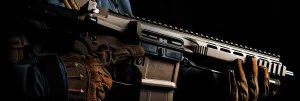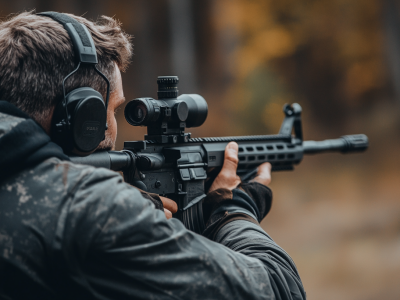What Is the Hearing Protection Act (HPA)?
The Hearing Protection Act (HPA) is a proposed federal law aimed at reducing restrictions on firearm suppressors. Supporters argue that suppressors, commonly referred to as silencers, provide vital hearing protection for firearm users and pose minimal risks to public safety. Currently, suppressors fall under the strict regulations of the National Firearms Act (NFA), requiring a $200 tax, extensive background checks, and lengthy approval times.
The HPA seeks to:
- Reclassify suppressors under the Gun Control Act (GCA) instead of the NFA.
- Streamline the purchase process by requiring only standard background checks.
- Provide tax refunds for recent suppressor purchasers who paid the $200 tax.
If passed, this law could make suppressors more accessible to firearm enthusiasts while aiming to promote safer gun use.
Supporters vs. Critics: The Debate on Suppressor Accessibility
Why Supporters Advocate for the HPA
Proponents of the HPA, including gun rights organizations like the National Rifle Association (NRA) and the American Suppressor Association (ASA), highlight the benefits of suppressors:
- Hearing Protection: Suppressors reduce the noise generated by firearms, potentially preventing hearing damage for users.
- Safety and Convenience: They make shooting more comfortable without affecting the firearm’s lethality.
Supporters argue that suppressors do not make firearms more dangerous, and the community safety risks are minimal compared to the health benefits for users.
Critics’ Concerns
Opponents, including gun control advocates, express concerns about:
- Public Safety: Suppressors could hinder the ability of law enforcement and civilians to detect gunfire in emergencies.
- Gun Violence: Critics fear that making suppressors more accessible could complicate efforts to address gun violence and safety concerns.
The HPA remains a polarizing issue, with supporters framing it as a public health measure and critics viewing it as a potential threat to safety.
A Timeline of the HPA’s Journey Through Congress
2015: The HPA’s Introduction
The HPA was first introduced in the 114th Congress by Representative Matt Salmon (R-AZ) and Senator Mike Crapo (R-ID). It sought to remove suppressors from NFA regulations, treating them like firearms under the GCA. While it garnered attention from gun rights advocates, the bill failed to progress beyond committee discussions.
2017: Renewed Efforts and the SHARE Act
In the 115th Congress, Representative Jeff Duncan (R-SC) reintroduced the HPA. This time, it was part of the broader Sportsmen’s Heritage and Recreational Enhancement (SHARE) Act, which included multiple pro-gun provisions. However, the momentum was halted after the Las Vegas mass shooting in October 2017, as suppressors became a controversial topic in discussions about gun violence.
2019: A Democratic Majority in Congress
During the 116th Congress, the HPA faced significant opposition due to a Democratic majority in the House of Representatives. It was not reintroduced as standalone legislation, reflecting the challenges faced by gun rights advocates in advancing the bill.
2021-2022: Reintroduction in the 117th Congress
The HPA was reintroduced by Representative Duncan and Senator Crapo, signaling continued support from Republican lawmakers and gun rights organizations. Despite this, the bill failed to move forward, as Democrats controlled both chambers and opposed the legislation.
2023-2024: Ongoing Efforts in the 118th Congress
As of the 118th Congress, the HPA remains a recurring topic in firearms legislation debates. Although it has not advanced into law, it continues to receive strong backing from Republican lawmakers and gun rights organizations. The enduring push for the HPA reflects a broader effort to normalize the use of suppressors while navigating the contentious landscape of gun control debates.
The Road Ahead: Will the HPA Become Law?
The future of the Hearing Protection Act remains uncertain. With the recent election of Donald Trump and a Republican majority in both the House and Senate, the bill may gain renewed attention. Supporters are optimistic about its chances, while opponents continue to challenge the legislation as part of a broader gun control debate.
Whether the HPA advances or stalls once again, the discussions surrounding suppressors highlight the complex intersection of public safety, individual rights, and legislative priorities in the United States.
Conclusion
The Hearing Protection Act represents a significant legislative effort to redefine the accessibility of firearm suppressors. While its proponents champion it as a step toward improved hearing safety and streamlined regulations, critics voice valid concerns about its potential public safety implications. As this debate continues, the HPA remains a focal point in the broader conversation about firearms and individual freedoms in America.



 Suppressors: More Than Just Cool Accessories
Suppressors: More Than Just Cool Accessories